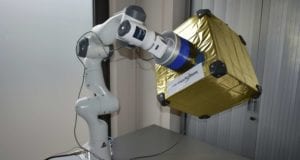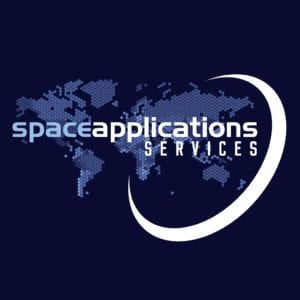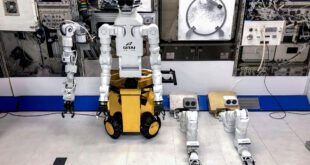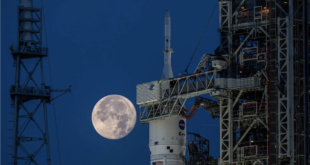
SpaceApps is highlighting its pioneering HOTDOCK device for in-orbit servicing to delegates at IAC 2019 in Washington, DC from 21-25 October at booth 481.
“The development of the LEO economy and the life extension of the International Space Station (ISS) are important aspects of SpaceApps’ activities,” said Michel Ilzkovitz, Systems Department Manager. “On-orbit servicing, the ability to re-fuel or repair assets in space, will be an essential part of space commerce, enabling a new level of sustainability. HOTDOCK forms a key part of the technology required to make this a reality.”
SpaceApps leads the European Commission’s MOSAR (Modular Spacecraft Assembly and Reconfiguration) initiative which aims to completely transform spacecraft design by enabling reconfiguration and maintenance.
At present, satellites tend to be highly customised with very little potential for servicing and maintenance in space. The MOSAR initiative allows to cost-effectively increase the modularity of space platforms and therefore ease in orbit reconfiguration.
 HOTDOCK is a Standard Interface device for robotic manipulation, providing redundant mechanical, power, data and thermal coupling capabilities between payloads and spacecraft or between spacecraft modules. HOTDOCK is an essential building block to support the emerging LEO/GEO robotic servicing market (spacecraft maintenance and reconfiguration, large structures assembly in space). It is also targeted to support the robotic needs of future exploration missions (LOP-G, Moon and Mars surface operations). HOTDOCK has been adopted as the Standard Interface to be used in three major projects of the European Commission’s Space Robotic Program:
HOTDOCK is a Standard Interface device for robotic manipulation, providing redundant mechanical, power, data and thermal coupling capabilities between payloads and spacecraft or between spacecraft modules. HOTDOCK is an essential building block to support the emerging LEO/GEO robotic servicing market (spacecraft maintenance and reconfiguration, large structures assembly in space). It is also targeted to support the robotic needs of future exploration missions (LOP-G, Moon and Mars surface operations). HOTDOCK has been adopted as the Standard Interface to be used in three major projects of the European Commission’s Space Robotic Program:
- MOSAR – Modular spacecraft assembly and reconfiguration using a walking manipulator – developing, integrating and demonstrating technologies to enable spacecraft on-orbit reconfiguration and maintenance.
- PULSAR – In space assembly of a large telescope mirror – designing and demonstrating technology for on-orbit precision assembly of mirror tiles of a very large space telescope by an autonomous robotic manipulation system.
- PRO-ACT – Planetary RObots Deployed for Assembly and Construction Tasks – developing and demonstrating cooperation and manipulation capabilities between robots for assembly of an in-situ resource utilisation (ISRU) plant.
“We will deliver a batch of 50 HOTDOCK units to industries involved in the European Commission’s Space Robotics Programme in early 2020,” noted Ilzkovitz. “If we can extend the life of spacecraft and other space assets, we will be better able to look after the space environment and this is critical if humanity is to be successful at the commercialisation of space.”





